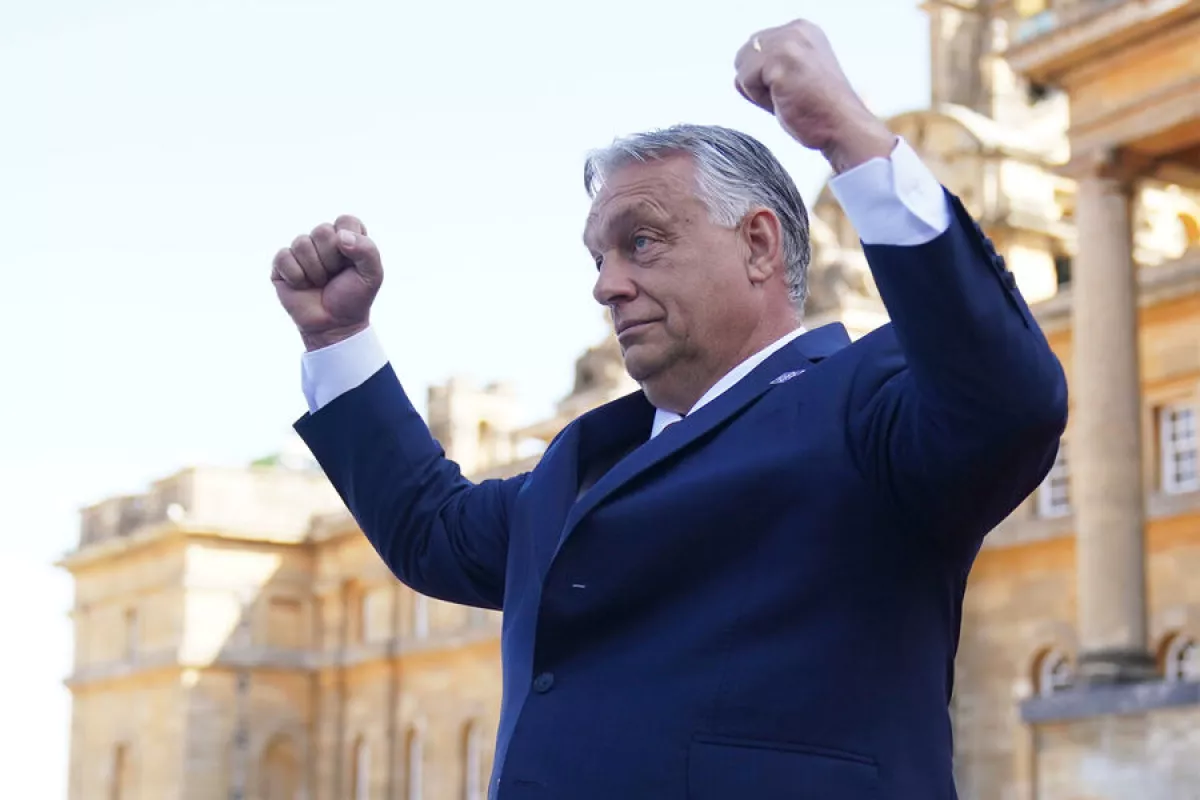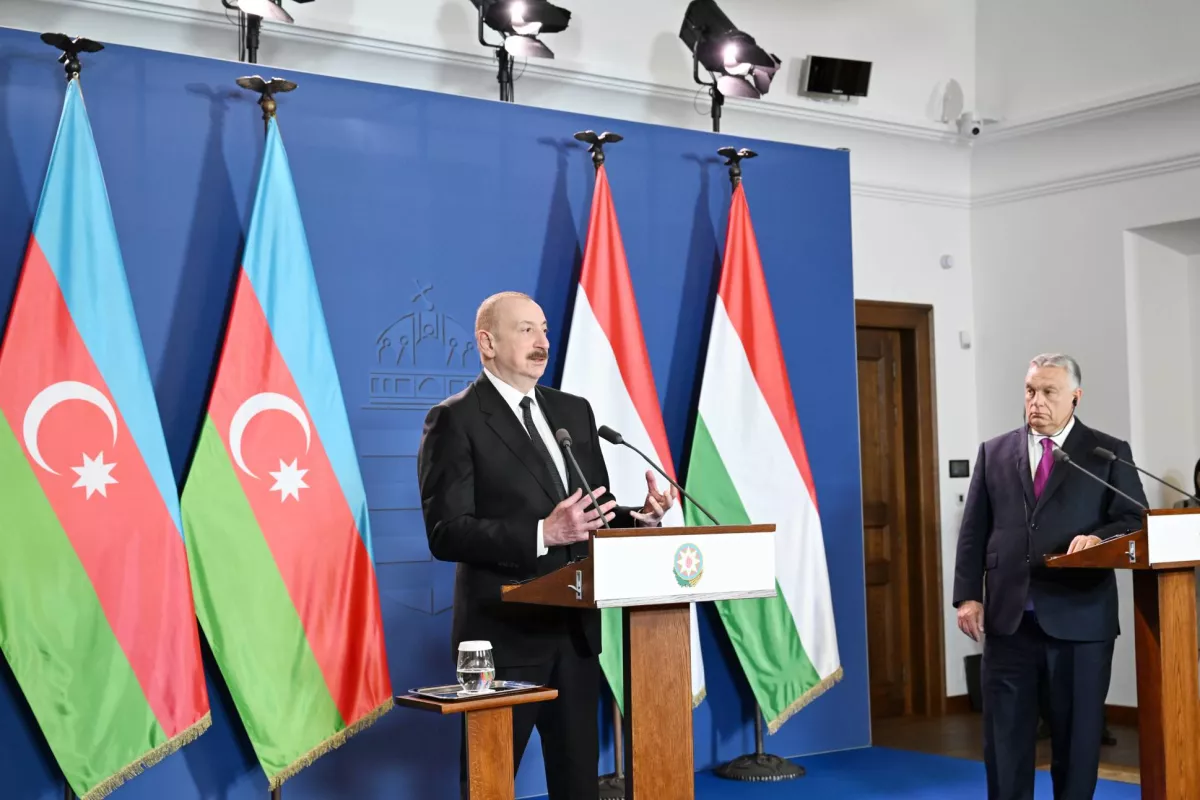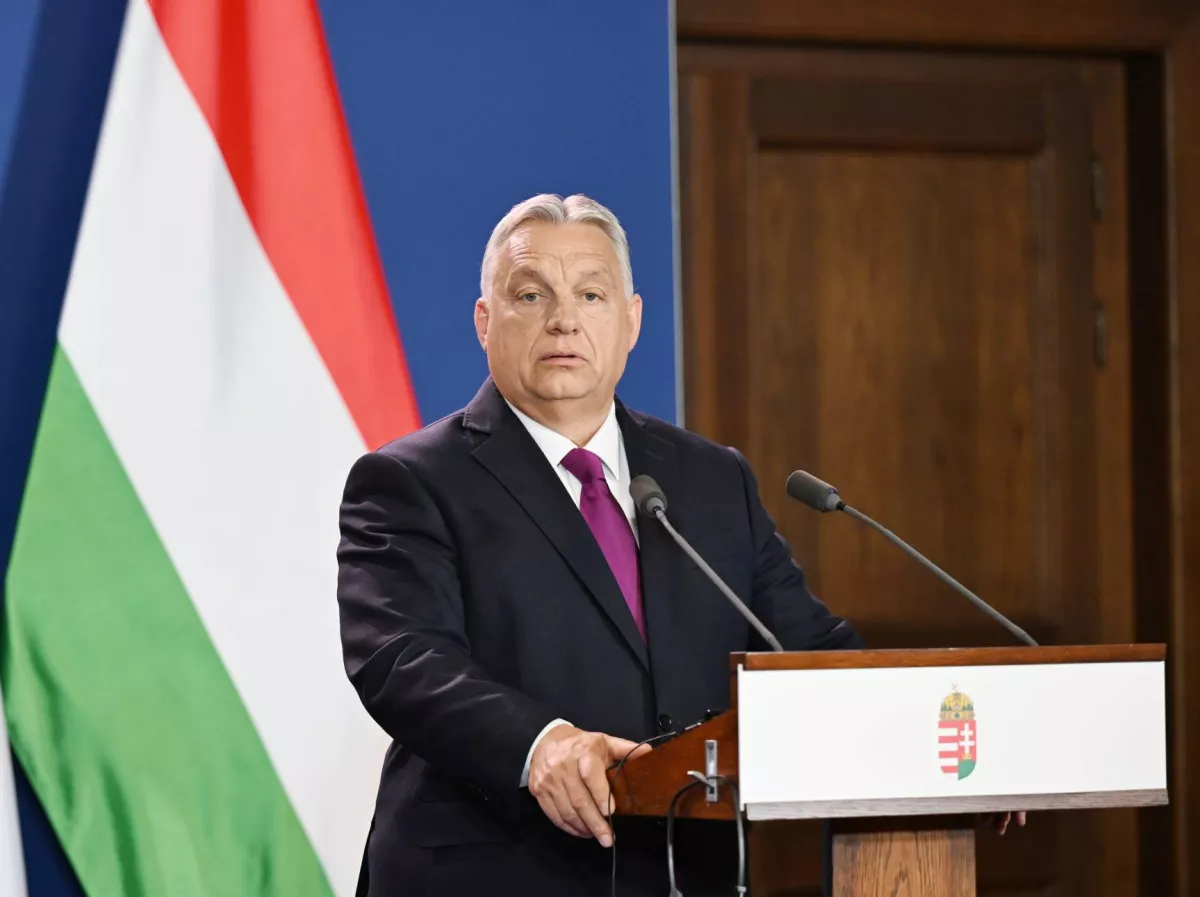When principles matter more than directives Budapest’s special path
Sometimes, press statements following bilateral talks between world leaders can be incredibly rich in meaning. Not just the full proposals voiced by heads of state, but even individual words can carry significant weight. This was clearly evident yesterday (May 20) during the press statement following the bilateral meeting between Azerbaijani President Ilham Aliyev and Hungarian Prime Minister Viktor Orbán.
Anyone who missed it can easily find the footage online—particularly the opening words of the Hungarian Prime Minister, who introduced the leader of our country as an “old friend” of Hungary. He went on to specify that for nearly two decades, President Ilham Aliyev has “always stood by our side during any difficulty Hungary has faced in any field,” regardless of the area.
For those who closely follow the twists and turns of global geopolitics—particularly through the lens of recent developments on the European continent—it is well understood how many obstacles official Budapest must overcome. Often, Hungary inches step by step toward outcomes vital for its people, navigating through a maze of hidden icebergs placed in its path by the European Union.
In this context, it’s worth recalling Viktor Orbán’s remarks about the EU losing ground on the global stage, lacking a clear vision for the future, and accumulating debt. He has also accused the EU of becoming isolated from key international players, emphasising that Hungary has no intention of following such a course.
Against this backdrop, the underlying message in Orbán’s words yesterday becomes all the more apparent.

That said, such statements do not appear out of the blue—they are rooted in the history of relations between the two countries. In this light, one can recall the year 2014, when the Joint Declaration on Strategic Partnership was signed. During that year, speaking at the Azerbaijan-Hungary Business Forum, Viktor Orbán remarked that countries incapable of asserting their national interests risk losing both friendly and partner states.
He went on to highlight the shared values of the two nations, placing special emphasis on their mutual respect for traditional values. Despite the prevailing attitude in Europe that everything can be treated with irony, Orbán stressed that matters such as family, people, and nation are not subjects for mockery. Every nation and every people, he said, deserve to be treated with proper respect and reverence. From this perspective, he noted, "we are honoured to welcome the head of state of such a country."
In turn, President Ilham Aliyev, drawing on Hungary’s example, stated that where a government protects national interests, the people in turn support that government. As the Azerbaijani leader put it, Hungary today stands as a symbol of independence in the region—despite the fact that within some international structures, it is not easy to pursue an independent policy.
Thus, President Ilham Aliyev’s statement yesterday—that Hungary is one of the few countries pursuing an independent policy, and that Viktor Orbán has always placed Hungary’s national interests “above everything else,” joining only those initiatives that serve the country’s benefit—can be seen as a continuation of the message voiced just over a decade ago.
This time, however, it was coupled with a significant recognition of the “enormous heroism and political will” required to implement such a course—particularly given that pursuing an independent line within the framework of the European Union is, as President Aliyev put it, “quite difficult.”

Budapest has also demonstrated its principled stance when it comes to its position on Baku. Notably, in September 2023, Hungary blocked an EU joint statement critical of Azerbaijan, which was aimed at undermining Azerbaijan’s efforts to strengthen its sovereignty over its own territory.
A similar approach was taken by Budapest during discussions on granting €10 million in military aid to Armenia from the so-called European Peace Facility. While Hungary ultimately withdrew its objections, it did so on the condition that an equivalent amount be allocated to Azerbaijan to support demining operations in the country.
Baku also recalls last year’s statement by Hungarian Foreign Minister Péter Szijjártó, who affirmed that Budapest would continue to monitor the EU’s policy in the South Caucasus to ensure it remains “balanced and does not pour fuel on the fire.”
It is fair to say that all of the above clearly points to a special format of mutual understanding between Budapest and Baku. And indeed, it could hardly be otherwise, given the two countries’ shared approach to defending their national interests. In this light, it is worth highlighting the similarities in measures adopted by both governments to prevent external interference in key domestic political processes and to ensure national security.
Particularly telling is Budapest’s consistent defence of national interests—not only in relation to its own affairs, but also in its wider geopolitical posture. A notable example came in autumn 2024, when Viktor Orbán paid an official visit to Georgia just two days after the country’s parliamentary elections—results that were being contested by opposition groups and questioned within the European Union. Orbán was the first to congratulate the Georgian authorities on their victory, underscoring that the people of Georgia know better what is best for their country, and they have ensured that their voice is heard.
He then delivered a phrase that quickly went viral: in European politics, “when liberals win, Brussels calls it democracy. When conservatives win, they say it’s not democracy.”
At the same time, given that an informal summit of the Organisation of Turkic States (OTS) was being held in Budapest during the same period, the leaders of Hungary and Azerbaijan also touched on this topic in their joint press statement.
Prime Minister Orbán emphasised that in an increasingly turbulent world, marked by rising threats and challenges, friendly countries are coming together to discuss the most pressing issues. He specifically underscored this notion of friendship in the context of Hungary’s energy security, noting the vital role played by the Turkic states.

“If it were not for the Turkic countries,” Orbán declared emphatically, “the Hungarian population would have to spend three to four times more on energy.”
President Ilham Aliyev, for his part, highlighted Hungary’s deep connection to its historical roots within the context of the OTS.
A distinct point in Orbán’s address focused on the pursuit of peace as a necessary means to resolve global conflicts. He remarked that since the outbreak of the Russia-Ukraine war, the European Union has chosen the path of escalation. Against this backdrop, he congratulated President Aliyev on reaching an agreement on the text of the peace treaty between Armenia and Azerbaijan.
All the nuances highlighted above serve as compelling evidence of the special spirit of mutual understanding between our two nations. In this context, it is fitting to conclude with a remark made by Viktor Orbán during the 2023 summit of the heads of state and government of the UN Special Programme for the Economies of Central Asia (SPECA), held in Baku—an event to which he was invited by President Ilham Aliyev as an honorary guest.
As Orbán noted, “The friendship between Azerbaijan and Hungary is not only about gas cooperation,” because the two countries are building fraternal relations. And these ties are clearly visible today, with every reason to believe they will endure well into the future.








